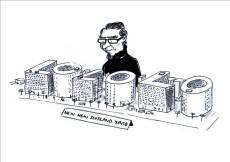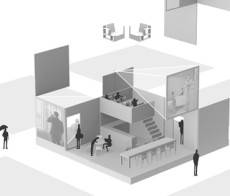October 21, 2013
Job satisfaction keeps employees motivated more than bonuses
 The reported levels of stress felt by banking employees already suggests that generous bonuses do not necessarily equate loving the job. Now a new study published today by the Institute of Leadership & Management (ILM) confirms that across the business sector, the single most effective motivator is job satisfaction (59%), with just 13 per cent saying the prospect of receiving a bonus or other financial incentive motivates them to work harder in their role. The survey of over 1,000 employees found that a competitive salary and a good pension are highly effective motivators (49%) but getting on with colleagues (42%) is nearly as important. The report also highlights how important good managers are to ensuring happy and motivated staff. More →
The reported levels of stress felt by banking employees already suggests that generous bonuses do not necessarily equate loving the job. Now a new study published today by the Institute of Leadership & Management (ILM) confirms that across the business sector, the single most effective motivator is job satisfaction (59%), with just 13 per cent saying the prospect of receiving a bonus or other financial incentive motivates them to work harder in their role. The survey of over 1,000 employees found that a competitive salary and a good pension are highly effective motivators (49%) but getting on with colleagues (42%) is nearly as important. The report also highlights how important good managers are to ensuring happy and motivated staff. More →
























September 20, 2013
The rehabilitation of the cubicle and other lessons from 100% Design
by Mark Eltringham • Comment, Events, Flexible working, Furniture, Products, Workplace design
UniteSE from KI
As we’ve said before, acoustics has become the dominant theme at office design exhibitions over the past three or four years. That’s been true at shows in Milan, Cologne, Chicago and London and was certainly the case at this year’s 100% Design at Earl’s Court. A quick whizz around the office zone at this year’s event – which is a useful way of getting an impression before you stop to talk to people about the detail of what they’re doing – revealed that well over half of the exhibitors were showcasing products that addressed the issue of acoustics. And yet things have also moved on from recent events, not least in the rehabilitation of that most demonised of all office furniture pieces – the cubicle.
More →